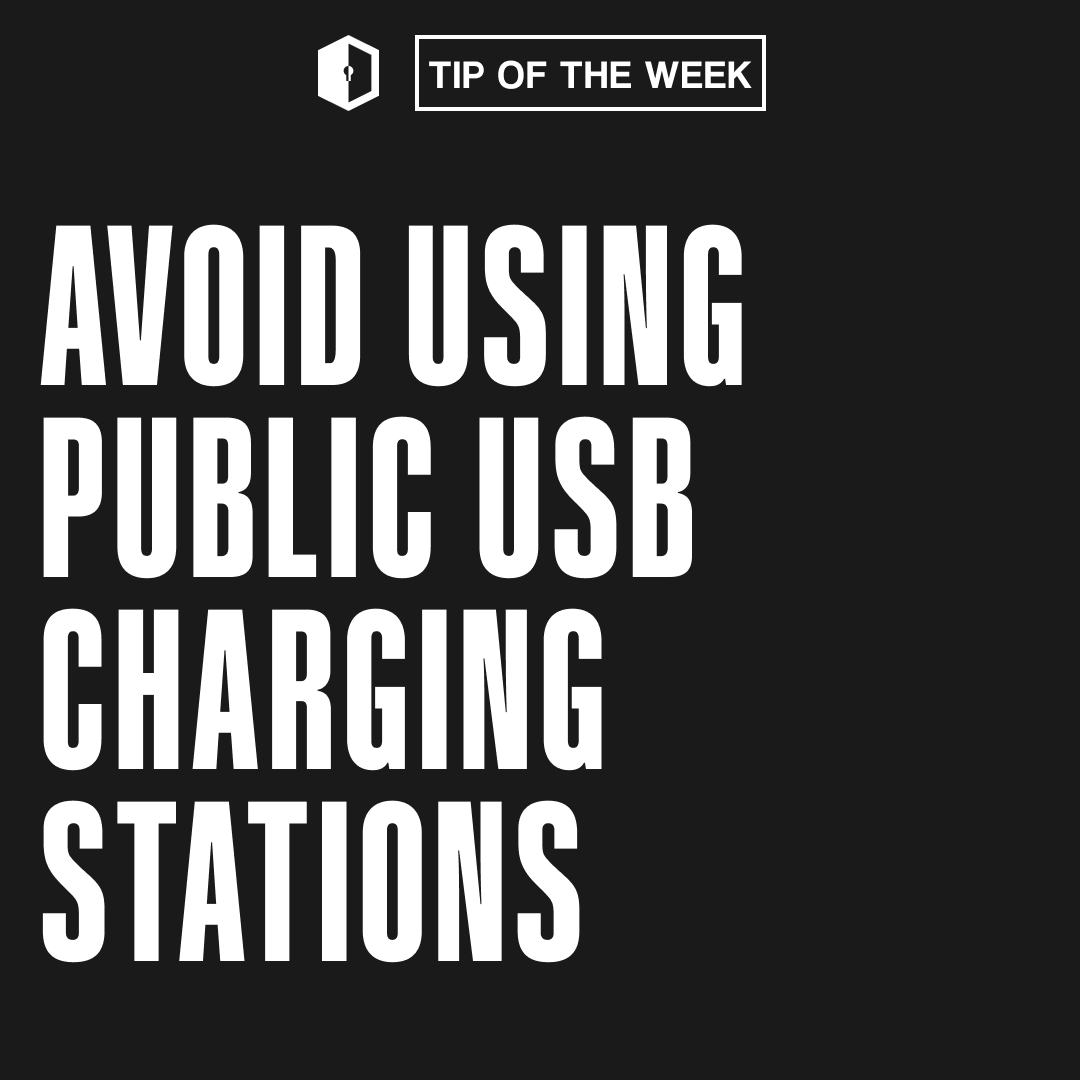🔌 Cyber Safety Tip of the Week: Avoid Using Public USB Charging Stations! ⚠️📱
Public USB charging stations, often found in airports, hotels, and other public places, might seem convenient, but they can pose serious security risks. Cybercriminals can tamper with these stations to install malware on your device or steal your data in a practice known as "juice jacking."

Story of a Juice Jacking Victim!
Sarah, a frequent traveler, plugged her phone into a public USB charging station at an airport during a layover. Unbeknownst to her, the station had been compromised by cybercriminals. Within hours, her phone began acting strangely, and she noticed unauthorized transactions on her bank account. Her personal and financial data had been stolen, leading to a frustrating and lengthy process of securing her accounts and regaining control over her information.
What is the Risk with Public USB Charging Stations?
Public USB charging stations, often found in airports, hotels, and other public places, might seem convenient, but they can pose serious security risks. Cybercriminals can tamper with these stations to install malware on your device or steal your data in a practice known as "juice jacking."
Why is Avoiding Public USB Charging Stations Critical?
Using compromised USB charging stations can lead to unauthorised access to your personal information, financial data, and even sensitive work-related content. This can result in identity theft, financial loss, and breaches of confidential information.
How to Identify Risky Public USB Charging Stations:
- Unfamiliar or Unsecured Locations: Be cautious of charging stations in locations that seem less monitored or unsecured.
- Visible Tampering: Look for any signs of tampering or unusual attachments to the USB ports.
- Absence of Proper Branding: Avoid using charging stations that lack proper branding or appear to be makeshift setups.
How to Stay Safe from Public USB Charging Station Risks:
- Use Your Charger: Always carry your charger and plug it into a regular electrical outlet.
- Portable Power Banks: Invest in a portable power bank to charge your devices on the go.
- USB Data Blockers: Use USB data blockers, also known as "USB condoms," which allow power to flow to your device but block data transfer.
- Avoid Unfamiliar USB Cables: Only use USB cables from trusted sources and avoid borrowing cables from strangers.
"Take charge of your online presence! Regularly monitor your digital footprint to ensure your personal information remains safe and your reputation intact."
Stay tuned for more insights and tips in our Cyber Security Tip of the Week series! 🌐🔒
Are you curious to know how we can help your organization stay secure from such attacks and reduce your human risk and attack surface? Contact us!

